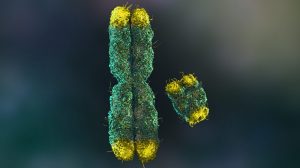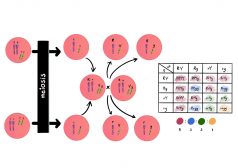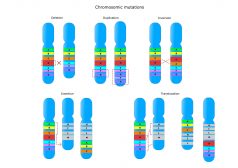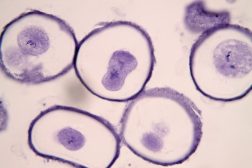Complement
(Science: immunology) a term originally used to refer to the heat labile factor in serum that causes immune cytolysis, the lysis of antibody coated cells and now referring to the entire functionally related system comprising at least 20 distinct serum proteins that is the effector not only of immune cytolysis but also of other biologic functions.
complement activation occurs by two different sequences, the classic and alternative pathways. The proteins of the classic pathway are termed components of complement and are designated by the symbols C1 through C9.
C1 is a calcium dependent complex of three distinct proteins C1q, C1r and C1s. The proteins of the alternative pathway (collectively referred to as the properdin system) and complement regulatory proteins are known by semisystematic or trivial names. Fragments resulting from proteolytic cleavage of complement proteins are designated with lower case letter suffixes, for example, C3a. Inactivated fragments may be designated with the suffix i, for example C3bi. Activated components or complexes with biological activity are designated by a bar over the symbol for example C1 or C4b, 2a.
The classic pathway is activated by the binding of C1 to classic pathway activators, primarily antigen-antibody complexes containing igm, IgG1, IgG3, C1q binds to a single igm molecule or two adjacent igg molecules.
The alternative pathway can be activated by iga immune complexes and also by nonimmunologic materials including bacterial endotoxins, microbial polysaccharides and cell walls. Activation of the classic pathway triggers an enzymatic cascade involving C1, C4, C2 and C3, activation of the alternative pathway triggers a cascade involving C3 and factors B, D and P. Both result in the cleavage of C5 and the formation of the membrane attack complex.
complement activation also results in the formation of many biologically active complement fragments that act as anaphylatoxins, opsonins or chemotactic factors.
Dictionary > Complement




